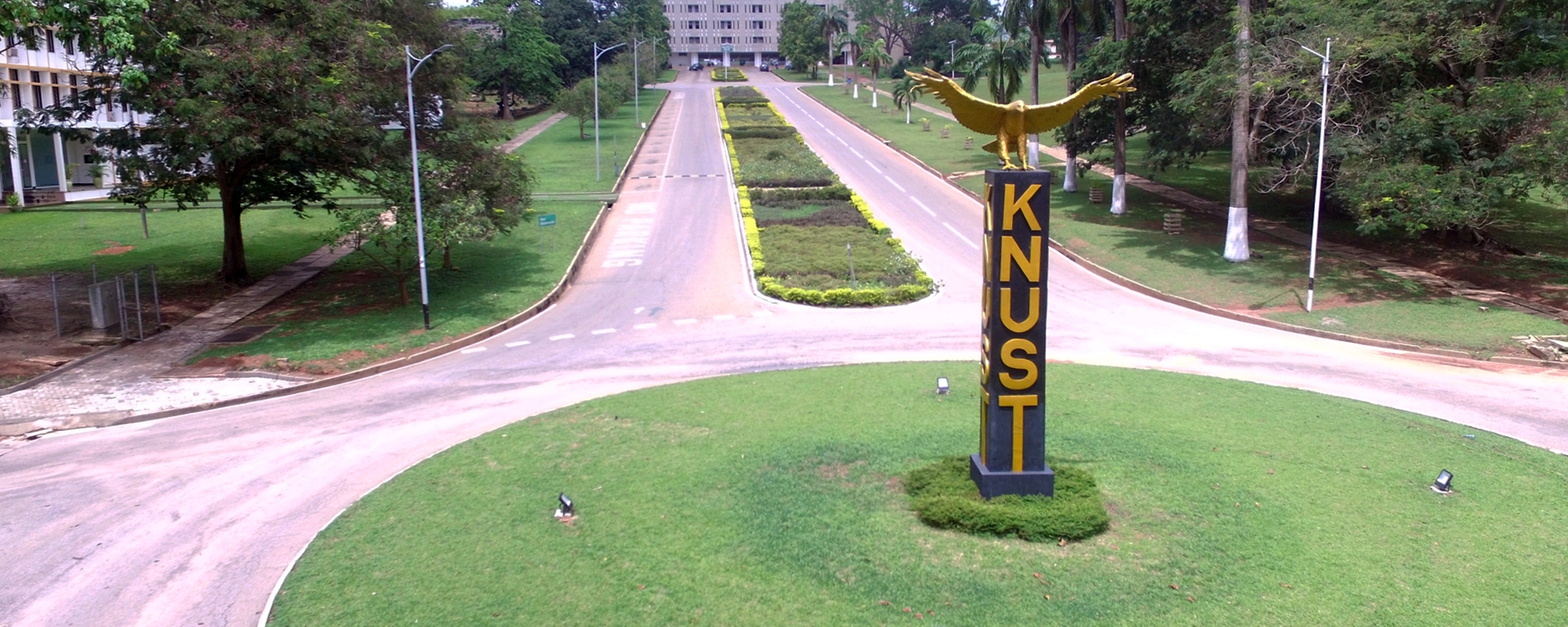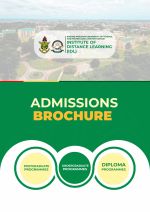Overview
Aims:
The MSc Physics is designed to produce qualified Physicists in academia and industry. In particular, the key ingredients necessary for securing the highest standards of teaching physics in our schools and applying thereof in our industries and society. The programme is a highly practice-based programme that will provide students with the opportunity to enhance their current practice, experience and develop their skills (e.g. teaching skills, laboratory conduction, project management skills, research skills, etc.).
Objectives
The objective of the MSc degree in Physics is to build human capacity by training to produce skilled postgraduates with world standard qualities in:
i. Teaching Physics in Secondary schools and
ii. Working in industry
Justification of Programme
Ghana needs more trained scientists and teachers to understand and solve many of the nation’s challenges and issues pertaining to development and innovative industrialization. Teachers play a vital role by fostering the intellectual and social development of a nation’s youth which leads to human capacity building. The achievements of these are possible, if the Academics in the Department intensify of the country’s teachers and industrialists. This will increase efficiency and effectiveness in all diverse aspects of our socio-economic and industrial sectors. The Department of Physics has a very strong solid foundation in physics and its applications. Hence, the Department of Physics is in a good position to drive this single but complex task - improving the knowledge and understanding of students from all aspects of science and engineering. Finally, the exponential increase teacher student ratio in our schools requires Ghana to be prepared and positioned to embrace the fortunes that come with having qualified teachers and industrialist. There is therefore the need to train well-qualified scientists and technologists to drive industrial and scientific development and technological innovation.
Modules and courses
| Code | Course Title | Credits | ||
| Year One: Semester One | T | P | C | |
| MATH 585 |
Advanced Differential Equations for Physics |
2 | 0 | 2 |
| MATH 587 | Analysis & Algebra | 2 | 0 | 2 |
| PHYC 583 | Programming for Physics | 2 | 0 | 2 |
| PHYS 581 | Topics in theory of Fields | 3 | 0 | 3 |
| PHYS 583 | Thermal Physics | 3 | 0 | 3 |
| PHYS 585 | Crystal Structure & Dynamics | 3 | 0 | 3 |
| Year One: Semester One | T | P | C | |
| MATH 582 | Numerical Methods | 2 | 3 | 3 |
| PHY 570 | MSc. Project | 2 | 0 | 0 |
| PHY 580 | Research Methods for physics | 2 | 1 | 1 |
| PHY 582 | Physics Instrumentation | 3 | 3 | 3 |
| Area of Specialisation (Select Two (2) Courses in Your Area of Specialisation) | ||||
| I. GEOPHYSICS | T | P | C | |
| PHYG 582 | Advanced Fluid Dynamics | 3 | 0 | 3 |
| PHYG 584 | Exploration Geophysics | 3 | 0 | 3 |
| PHYG 586 | Applied Environmental Geophysics | 3 | 0 | 3 |
| PHYG 588 | Applied Geology | 3 | 0 | 3 |
| II. MATERIALS SCIENCE & COMPUTATIONAL PHYSICS | T | P | C | |
| PHYM 582 | Applied Materials Science | 3 | 0 | 3 |
| PHYG 582 | Advanced Fluid Dynamics | 3 | 0 | 3 |
| PHYC 582 | Simulation for Classical & Quantum Mechanics | 3 | 0 | 3 |
| iii. NUCLEAR PHYSICS | T | P | C | |
| PHYG 582 | Advanced Fluid Dynamics | 3 | 0 | 3 |
| PHYN 582 | Applied Nuclear Physics | 3 | 0 | 3 |
| PHYN 584 | Nuclear Technology | 3 | 0 | 3 |
| PHYN 586 | Radiation Interaction | 3 | 0 | 3 |
| PHYN 588 | Particle Physics | 3 | 0 | 3 |
Mode of course delivery
The programme is offered through distance education, a learning oriented system allowing greater flexibility in learning while students continue with their regular professional work. The programme is offered in a mixed mode format. The approach uses print and electronic media in order to be responsive to the needs of the learner and also maximize the use of technology in course delivery.
At the heart of the programme is excellent online learning materials developed by capable and competent resource persons from KNUST and other recognized institutions.
Academic Support Systems/Services
Limited face-to-face facilitated sessions are provided at all the Learning Centres. These sessions are supported by print and electronic materials, and local learning facilitators who also support and direct students as they work through the resources provided.
The Centres provide learning support to students living in different parts of the country, thus reducing travel expenses.
Learning centres
Head of department
Prof. Reuben Yao Tamakloe
Head of Department
Biography
Reuben Yao Tamakloe is an Associate Professor in the Department of Physics. He joined KNUST as a lecturer after completing his masters in 2002, in then African Virtual University (AVU). Prior to re-locating to the Department of Physics in 2010 he served as system administrator at the Faculty of Distance Learning, FDL (now Institute of Distance Learning, IDL), overseeing the smooth running of LAN, Computer Literacy, online audio-visual platform in AVU distance learning and RMIT collaborative BSc. /Diploma Computer Science. Prof. Tamakloe also served as head of department for Kumasi Virtual Centre for Information Technology (KVCIT-IDL) for 2 years. Under his headship he strived to provide healthy learning environment for all distance and short-course students to achieve their desire goals.
Prof. R. Y. Tamakloe has being working on Renewable Energies; starting from the fabrication of Al/SnO2/n-Si Solar Cells, hydrogen fuel cells and now doing extensive research into microbial fuel cells (MFCs). He introduces hydrogen peroxide as a cathodic substrate and Mfensi clay as ion-exchange-partition into the MFC cycle. Reuben Y. Tamakloe had his BSc., MSc. and PhD all from the Department of Physics - KNUST. He also had Post Graduate Diploma in Education (P.G.D.E - Sandwich) from the University of Cape Coast (UCC). He taught Physics and Integrated Science in St. John’s Grammar School, Achimota from 1992 to 1999.
He attended Kaneshie Secondary/Technical School (KATECO) for his O’Level and Winneba Secondary School (Winnesec) for his A’Level.
He is currently the Head, Department of Physics – College of Science, KNUST Kumasi.
Exam officer
Dr. Akyana Britwum
Examination Officer
Biography
Akyana Britwum is a lecturer at the Department of Physics of the Kwame Nkrumah University of Science and Technology (KNUST). He joined KNUST as a lecturer after completing his PhD in 2015.
Akyana Britwum’s three degrees, his BSc., MSc. and PhD are all from the Department of Physics - KNUST.
Some of the courses he teaches at the department are Programming with C++, Visual Optics and Psychophysics, Classical Mechanics, Phase Transformations and Introduction to Human Biomechanics.
Akyana Britwum’s research areas are Ferroelectric Thin Films, Multiferroic Materials and their application and strongly correlated electron systems.
Programme coordinator
Dr. Henry Martin
Programme Cordinator
Biography
Dr. Henry Martin is a Lecturer at the Department of Physics, a Research Fellow at National Institute for Mathematical Sciences (NIMS - GH), and the Contact Person and an Assistant Local Coordinator for the Interdisciplinary Mathematics Network: RealMaths Consortium (RealMaths: KNUST & NIMS Path). Henry is currently the Contact Person for the Advanced Materials Technology (AMT) Research Group of the Department.
Henry holds PhD in Scientific Computing & Industrial Modeling awarded by KNUST under the auspices of NIMS - GH with exchange at L'Aquila University, Italy and a visiting scholar position at Oulu University, Finland. Henry obtained his Master's degree in Mathematical Engineering (Mathematical-Physics Modelling) at the University of L'Aquila in October, 2015 after completing his exchange programme at the University of Hamburg in Germany, Gran Sasso Science Institute (GSSI), INFN in Italy and finally conducting his research with the Computational Biophysics Biochemistry and Chemistry (CBBC) group at the University of Rome 'La Sapienza' in Italy, Dr. Henry Martin obtained his BSc Physics degree at the Department of Physics, KNUST and served as Teaching Assistant soon after his graduation.
Dr. Martin is a Mathematical and Computational Physicist interested in understanding and exploring most of the world's physical (real life) problems and challenges faced using Digital Twin Techniques:
- MultiPhysics Modelling
- MultiScale Modelling (Quantum to Continuum)
- Machine Learning and Statistical Analysis
in areas such as Water systems, Hydrogeology, Climate, Renewable Energy and Materials (thus Plasticity and Phase Transformation).
He teaches undergraduate and postgraduate courses. He has been a Visiting Fellow of Institute of Pure and Applied Mathematics (IPAM), University of California (UCLA), Los Angeles, USA, International Centre for Theoretical Physics (ICTP) and many others. He has participated and presented at several workshops, seminars, and conferences around the world. He is a Member of the Institute of Mathematics and its Application (MIMA).
"Non Scholae sed Vitae Discimus" - "We Learn Not for School but for Life"
"Non Sibi sed Aliis" - "Not for Self but for Others"
1.1 A minimum duration of 1 year (12 months) for MSc
1.2 How long does it take to complete the programme under the traditional instructional mode? Same as above
1.3 Entry requirements for admission of students:
a. Applicants should have a minimum of Pass in his/her degree from a recognized university in
• BSc (Physics)
• BSc (Meteorology and Climate Science)
• BSc (Engineering)
• BSc (Mathematics)

How to Apply
Pursuing an academic programme is an important step toward your future — and we're here to help


